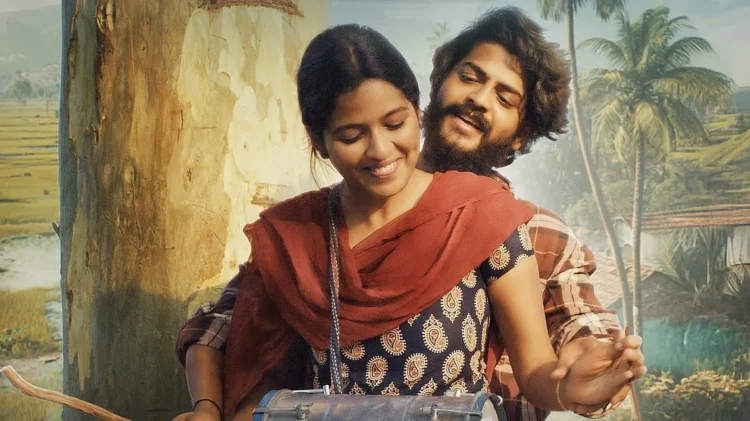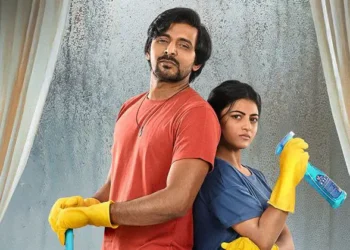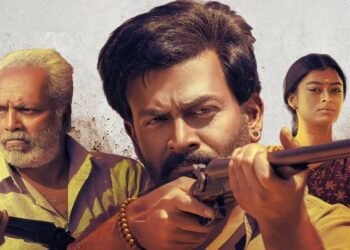Sometimes, a small film arrives quietly but grabs attention in unexpected ways. Raju Weds Rambayi, a rural Telugu drama, was one such surprise. Initially flying under the radar, the movie gained momentum thanks to a viral folk-inspired song and an engaging trailer. With the director boldly promising outrageous acts if the film failed, curiosity peaked among audiences. But did it deliver on the hype? Let’s break it down.
Story
Set in 2010, in a quaint Telangana village nestled between Warangal and Khammam, the film follows Raju (Akhil Raju) — a local band player whose music is a fixture at every celebration and farewell. Despite pressure from his father (Shivaji Raja) to seek a stable job in Hyderabad, Raju refuses to leave his village for one heartfelt reason: Rambayi (Tejaswini Rao).
Initially indifferent to his affections, Rambayi eventually reciprocates his love. However, her father Venkanna (Chaitanya Jonnalagadda) is determined to marry her off to a government employee. Fearing rejection, Rambayi makes a bold choice — she becomes pregnant before marriage, hoping it will force her father’s approval. But Venkanna’s reaction sparks tragedy, throwing the couple’s future into chaos. Inspired by a real-life honour killing from Illandu in 2010, the narrative takes a brutal turn in the final act, exposing the darker sides of societal norms.
Performances
For a film led by newcomers, Raju Weds Rambayi surprises with its authentic performances. Akhil Raju and Tejaswini Rao bring a raw charm to their roles, speaking the Telangana dialect fluently and handling emotional moments with ease. Tejaswini, in particular, stands out in heavy scenes, leaving a lasting impression.
Chaitanya Jonnalagadda’s portrayal of Venkanna is intense and commanding, although at times slightly exaggerated due to the script’s demands. Supporting characters — including the comic relief “Dambar” — add levity and help balance the emotional weight.
Behind the Scenes
Technically, the film scores well. Suresh Bobbili’s background music elevates both romantic and tense moments, while Wajid Baig’s cinematography captures the rustic beauty of Telangana villages with warmth and detail. The songs are catchy, enhancing the film’s rural setting. The editing, however, could have been tighter — particularly during the slower, more repetitive second half.
Final Verdict
What sets Raju Weds Rambayi apart from similar honour killing dramas is its focus on marginalised communities rather than the usual upper-caste narratives. This perspective adds depth and relevance to the storytelling.
Overall, Raju Weds Rambayi offers an engaging first half filled with humour, youthful romance, and relatable nostalgia for 90s kids. While the second half stumbles with predictable scenes and slower pacing, the climax redeems it entirely — delivering an emotional gut punch that stays with you long after the credits roll.
If you appreciate honest storytelling rooted in rural life, strong performances, and a climax that confronts social realities head-on, this film is worth your time. Just be prepared for an ending that is as heartbreaking as it is thought-provoking.























